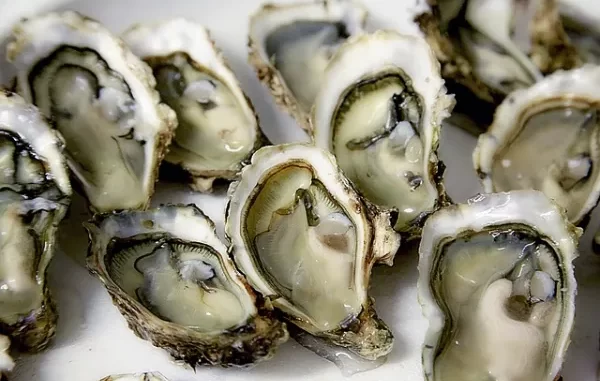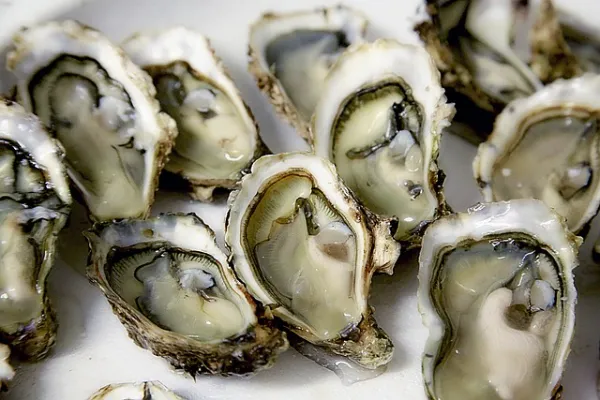
Oysters are a type of mollusk that have been a favorite delicacy throughout many cultures for centuries. Not only are they a tasty treat, but they also possess some interesting and unique facts that many people do not know about. From their unusual habits to the various health benefits they offer, oysters make for an interesting conversation topic. In this article, we’ll explore some of the most interesting and fun facts about oysters.
Uncovering the Amazing Benefits of Oysters
Oysters have been a staple of human diets for centuries. Not only are they incredibly delicious, but they are also incredibly nutritious. Oysters are packed with essential vitamins and minerals, and they provide some amazing health benefits. In this article, we’ll explore some of the amazing benefits of eating oysters.
Oysters are rich in essential vitamins and minerals. They are a great source of zinc, which is important for immune system function and wound healing. They also contain copper, iron, calcium, selenium, and vitamin A, B-12, and D. Additionally, oysters are a great source of healthy fats, including omega-3 fatty acids.
Oysters are also high in protein. One oyster contains about six grams of protein, making them an excellent addition to any diet. Protein helps keep you full for longer, and it can help aid in muscle growth and development.
Oysters are also a great source of antioxidants. Antioxidants help protect your body from oxidative stress caused by free radicals. They also help reduce inflammation and may even help reduce the risk of certain types of cancer.
Oysters are also rich in essential minerals, such as magnesium, potassium, and phosphorus. These minerals are important for a number of bodily functions, including bone health, muscle contraction, and nerve transmission.
Finally, oysters are a low-calorie food. Two oysters contain only about 20 calories, making them an excellent snack for those looking to watch their calorie intake.
As you can see, oysters are an incredibly nutritious food that can provide a number of health benefits. If you’re looking for a delicious and nutritious snack, look no further than oysters!
7 Fun Facts About Oysters
- Oysters are a type of mollusk that has been consumed by humans for thousands of years. In fact, oysters have been mentioned in some of the oldest written documents in history.
- Oysters have the ability to filter up to 50 gallons of water per day. This makes them important for maintaining water quality in many ecosystems.
- Oysters are considered a delicacy in many parts of the world. The most expensive oysters come from France, where they are sometimes sold for as much as $100 per dozen.
- Oysters have an incredibly high nutritional value. They are rich in vitamins, minerals, and omega-3 fatty acids.
- Oysters come in a variety of shapes and sizes. There are over 200 species of oysters in the world, each with its own unique characteristics.
- Oysters can reproduce both sexually and asexually. Some species of oysters are capable of cloning themselves.
- Oysters can live up to 20 years in the wild. They have been known to live even longer in captivity.
Oysters: An Interesting Look at Their Historical Significance
Oysters have been enjoyed as a delicacy for centuries, with evidence of their consumption dating back to ancient times. Not only are oysters a delicious treat, but they have a fascinating history and have played an important role in human culture.
Oysters have been eaten for thousands of years, with evidence of their consumption in ancient Egypt, Greece, and Rome. In the Middle Ages, oysters were a favorite among nobility and were considered a luxury. In the 17th century, oysters were so popular that they were overharvested and became scarce in many areas, leading to the creation of oyster beds and regulations on harvesting.
Oysters are an important source of food and nutrition. They are high in protein, vitamins, and minerals, and have been used as a dietary supplement in times of famine. Oysters are also an important part of ocean ecosystems, providing habitat and food for a variety of aquatic species.
The shells of oysters have also been used throughout history. In ancient times, oyster shells were used as currency in some parts of the world. Today, oyster shells are used in jewelry, art, and crafts. They are also used as a source of calcium for construction materials and as a soil amendment.
Oysters have also been a part of human culture for centuries. In some cultures, oysters are associated with fertility and abundance, while in others, they’re seen as a symbol of wealth and power. In literature, oysters are often used as a metaphor for something that is valuable and worth seeking out.
Oysters have been an integral part of human culture for centuries, and their importance in both sustenance and culture is undeniable. From providing a source of nutrition, to being used as currency, to inspiring literature, oysters have certainly earned their place in history.
Incredible Oyster Facts You Never Knew Existed

- Oysters are a type of mollusk, and they are incredibly diverse. There are over 200 species of oyster around the world, and they are found in all of the world’s oceans.
- Oysters are filter feeders, meaning they filter plankton, bacteria, and other small organisms out of the water in order to feed.
- Oysters can actually change their sex. Most oysters start out as male, but can change to female as they mature.
- An oyster’s shell can tell you a lot about its age. The older the oyster, the thicker and more heavily ridged its shell will be.
- Oysters are incredibly efficient at filtering water and can clean up to 50 gallons per day.
- Oysters are a delicacy in many cultures and are considered a sign of wealth and good luck.
- Oysters have been consumed for thousands of years, with evidence of their consumption dating back to the Roman Empire.
- Oysters are an excellent source of nutrients, including zinc, iron, calcium, and vitamin A.
- Oysters are hermaphroditic, meaning they can produce both eggs and sperm.
- Oysters reproduce by releasing larvae into the water, which then attach to a surface and begin to grow.
Oysters are truly incredible creatures. Not only do they play an important role in the environment, they also have some very interesting and unique facts associated with them. From their ability to change gender, to their use as a currency and even their potential to help reduce the effects of climate change, oysters have a remarkable and fascinating history. Whether you are an oyster connoisseur or just looking for a fun fact to share with friends, there is something for everyone to learn about these incredible bivalves.

Leave a Reply